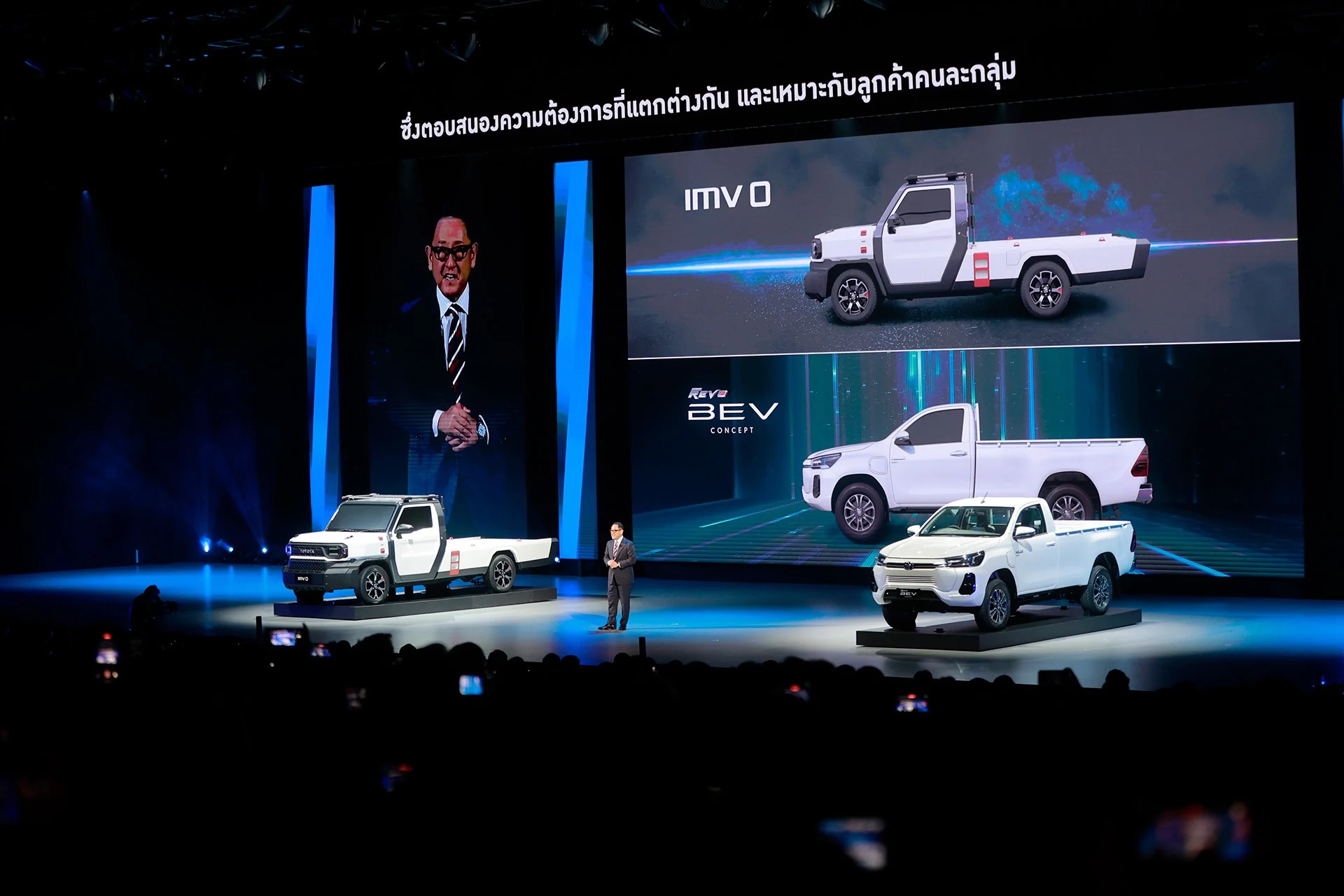

Toyota to launch EV tailored to emerging markets
Published on: Monday, December 26, 2022
By:
Nikkei, FMT
Text Size:

Toyota Motor president Akio Toyoda unveiled new truck prototypes, including one electric model, in Bangkok on Dec 14. (Website pic/Global Toyota)
The step is part of the Japanese company’s multipronged approach to decarbonisation.
Toyota unveiled Dec 14 an electric pickup truck prototype under its Innovative International Multi-purpose Vehicle (IMV) project, a strategy to produce and sell affordable vehicles tailored to the local needs of emerging economies.
The new EV represents one end of the automotive spectrum, which is designed to “support carbon neutrality and a better environment for all,” President Akio Toyoda said in a speech for an event celebrating the 60th anniversary of subsidiary Toyota Motor Thailand.
The truck will initially be produced and sold in Thailand. Toyota will consider eventually releasing it elsewhere in Southeast Asia and beyond.
Toyota launched the IMV project in 2004 with the production of the Hilux pickup truck in Thailand. The series also includes the Fortuner sport utility vehicle and the Innova minivan. All current IMVs run on internal combustion engines.
The vehicles have found major success in emerging economies, thanks to their ability to handle rough roads and to haul various types of cargo. In the Philippines, they can be seen everywhere in and around cities like Manila.
One of Toyota’s biggest IMV plants is in central Thailand’s Ban Pho. It focuses on pickup trucks, as well as SUVs based on them. The finished vehicles are exported to 124 countries throughout the world.
Toyota also makes IMVs in Indonesia, South America and Argentina. But Thailand, where it can source 96% of the needed content locally, is its largest production hub.
Toyoda himself led the launch of the IMV project as the executive in charge of Asia at the time. Two of Toyota’s three Thai plants are dedicated to IMVs, which account for around 70% of the automaker’s production and sales in the country. They make up around a third of sales in the Philippines.
In his Dec 14 speech, Toyoda also pointed to the automaker’s push into hybrids and fuel cell vehicles. “At Toyota we believe in creating a full portfolio of carbon-reducing choices for our customers,” he said.
The company also announced a partnership in hydrogen fuel with leading Thai conglomerate Charoen Pokphand Group that day.
Toyota is taking a multipronged approach to decarbonisation because of infrastructure constraints in emerging economies. With many of these countries heavily reliant on fossil fuels, Toyota does not see EVs cutting carbon dioxide emissions much more than hybrids. Charging stations can also be few and far between.
But Toyota’s strategy also poses a mismatch for emerging countries whose auto industries are shifting primarily toward EVs. In Thailand, the government looks to have EVs account for 30% of domestic auto production by 2030. Policymakers have rolled out a package of financial subsidies and tax incentives to encourage automakers to align with that goal.
In response, Chinese automaker BYD and Taiwan’s Hon Hai Precision Industry – the Apple assembler known as Foxconn – have decided to build EV factories in Thailand. The incentives also apply to Toyota, which plans to make EVs in Thailand, but its output is expected to be minimal for now.
Toyota leads the Thai new-auto market, with a roughly 30% share. Japanese automakers dominate, collectively approaching 90%. But signs of a shift have emerged. While EVs accounted for only 1% of total auto sales here between January and October, Chinese players Great Wall Motor and SAIC Motor were responsible for more than 70% of that.
In Indonesia, President Joko “Jokowi” Widodo has pledged to realise net-zero carbon emissions by 2060. Drawing direct investment in the EV industry is part of these plans.
Hyundai Motor and Chinese-American joint venture SAIC GM Wuling Automobile began manufacturing EVs on Indonesian soil this year. Toyota has yet to elaborate on similar plans. SAIC GM Wuling alone accounted for 70% or so of Indonesia’s EV sales between January and October.






